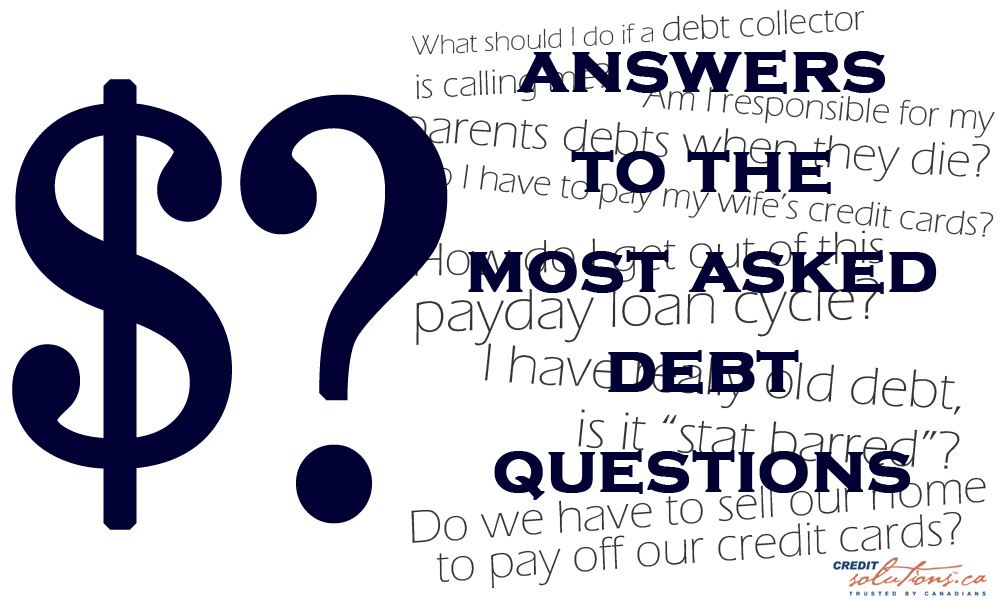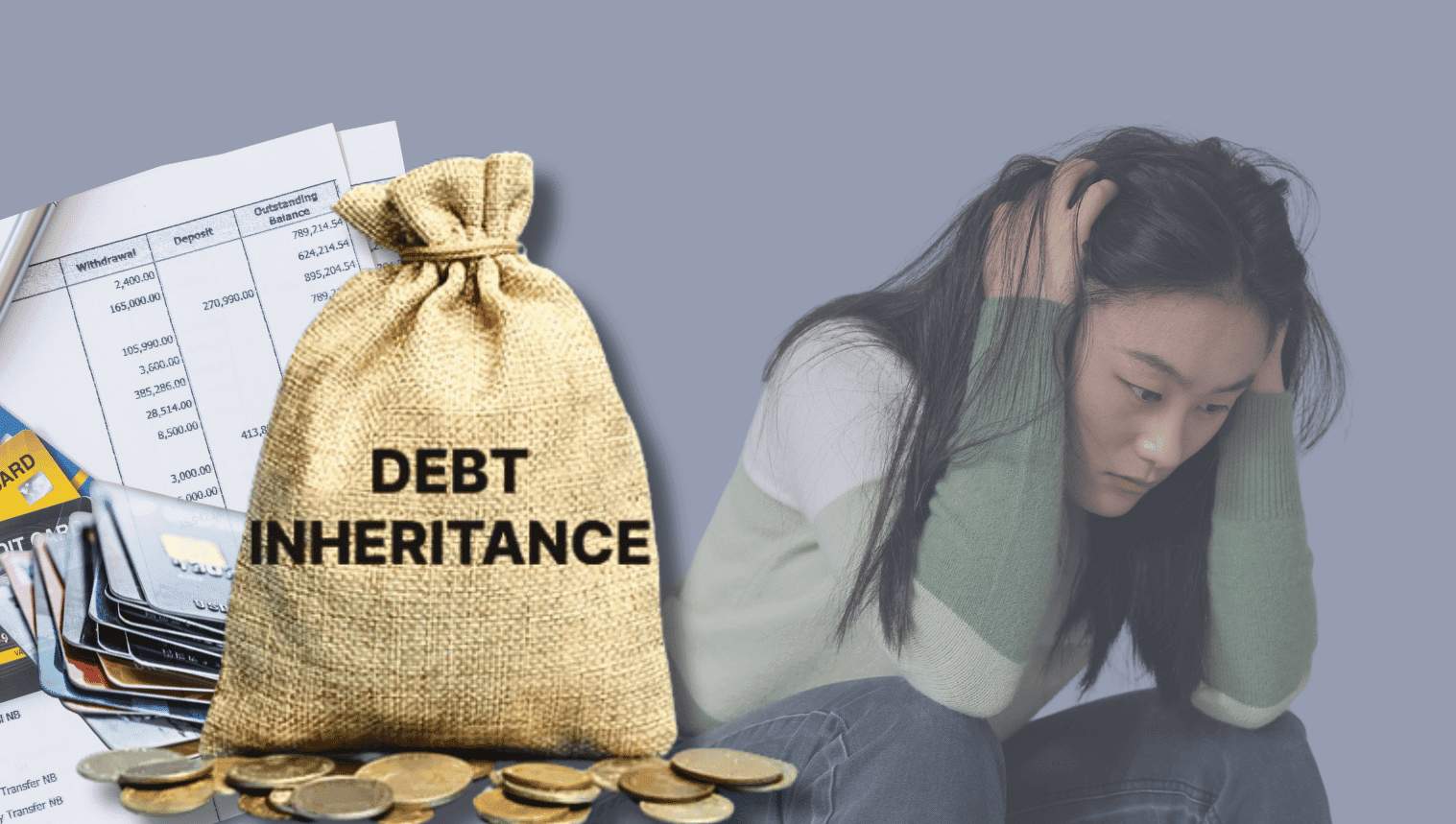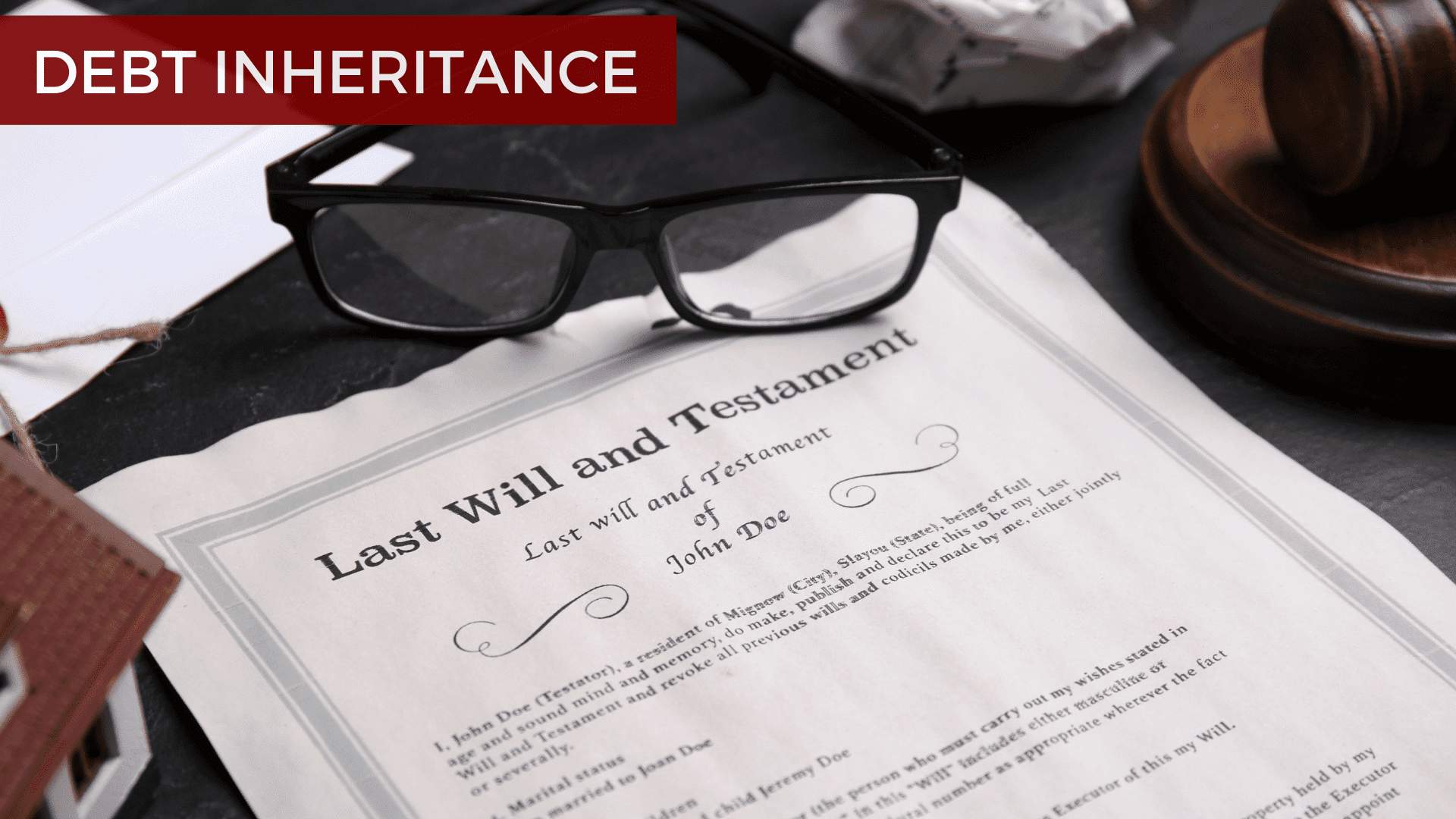Your rights around inheriting debt in Canada can vary depending on several factors, including provincial…

Answers to the Most Asked Debt Questions
We get a lot of great debt questions from our readers. In this post we’re going to share some of the best and most common debt questions we receive, along with our answers, so read on to find out what everyone wants to know!
Disclaimer – we are not lawyers, nor do we provide legal advice. Should you require legal advice we recommend you contact a lawyer in your location.

Can a US creditor garnish my Canadian wages?
Yes – however that will depend on several things such as: the State in which the creditor is located, where the debt occurred, where the Judgment was obtained and if an application has been made in Canada to allow the Judgment holder to pursue a court ruling in Canada. So you can see it is a complicated process in order to be able to garnish a person’s wages in Canada.
What should I do if a debt collector is calling me about a debt that isn’t mine?
Advise the caller the debt is not yours. If they persist in contacting you, ask the debt collector for their license number and ask them to send you proof of the debt. They should be able to mail you some proof that the your name is on the debt. If they are unable to do so, and continue to harass you for payment, you can report them to the collection practices authority in your province.
Here is a list of Prohibited Collection Practices from the Government of Canada. Do not be bullied!
When my parents pass away, will I be responsible for their debts? Am I required to pay the debts as beneficiary of the life insurance? Am I required to pay the debts as heir to the Estate?
No. While these situations have many variables, making them too complex to provide a simple answer, the short answer is no. Unless you are a co-signer on any of the debts? Or do you co-own any of the assets? In general, a deceased person’s debts (if solely theirs) will be paid from their Estate and not transferred to the name of surviving relatives. Life insurance is not for paying debts of the deceased! Please consult an Estate Lawyer in your area to discuss your specific circumstances and receive appropriate legal advice. You will be glad you did.
Helpful Article: Inherited Debts or Debts After Death
Am I responsible for my spouse’s credit card debts?
No. Unless you signed for it – the debt is not yours (however, with the new Family Law Act in BC we highly recommend you get legal advice)
If my wife passes away, do I have to sell our home, which is joint ownership, to pay off her credit cards?
NO. If the house is in Joint Tenancy, upon death the home reverts to the Joint Tennant. ( Again check with a Lawyer to be sure you are protected – trust no one- get Legal advice)
I have 4 separate payday loans, and every time I pay them I have to get another one to pay my bills. What can I do to get out of this?
Credit Solutions can help you get out of the payday loan cycle, please call us toll free 1-877-588-9491 to discuss your specific situation and we will advise you as to the best solution for you – from reworking your budget to arranging a payment schedule with the payday loan companies. We are 100% confidential and we are here to help you. Our Credit Counselling is always confidential, free and it works!
Helpful Articles: Payday Loans, Payday Loans: The Real Cost, and Payday Loan Debt Relief
I have about 20k in debt, not including my student loans which are about to come due. I am swamped by calls from collectors and can’t get work in my field. I don’t want to declare bankruptcy but I need help, what can I do?
Call Solutions Credit Counselling to discuss your situation and we will work for you to find a solution. Are you able to work in a different field for the time being? What are your income, expenses, assets, types of debt? We will provide a free consultation over the phone and advise you of all your available solutions – 1-877-588-9491
Helpful Articles: Debt Relief and How Debt Consolidation Works (and Saves you Money)
I have been out of the country for 8 years, and now I am being harassed for a debt that is over 8 years old. How long until a debt it stat barred? What happens to my credit report, and how should I handle this?
Did the creditor know how to reach you while you were out of the country? If not, the statute of Limitation may not apply to your situation. Get legal advice!
Each province has its own statute of limitations with regard to legal action of debt, generally between 2 to 6 years and as much as 10 years if there is a judgement. Consult the appropriate laws for your province. And be aware that the current limitation may not apply retroactively to debts that began before the current limitation was instated. For example, in June 2013 the BC Limitation Act was amended from the basic limitation period of 6 years to 2 years (dating from discovery of the claim) going forward. All debts incurred before June 1 2013 still fall under the old Limitation Act.
Debts relating to student loans, child support, taxes and alimony have their own statute of limitations.
After the statute of limitations has expired on a debt, you can contact the credit reporting bureaus to have it removed from your file. (They should have already done that but it is important for you to check your file and keep it current.)
We recommend consulting a lawyer on this before taking any action.
When someone dies, is there a time limitation on when creditors can apply for debt repayment from the estate?
Check the Limitation Act in your Province.












